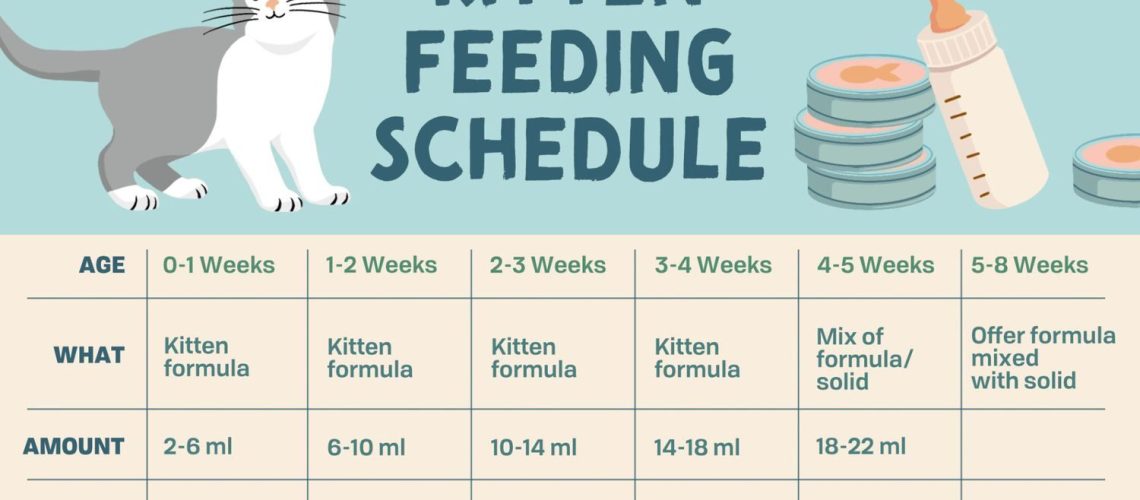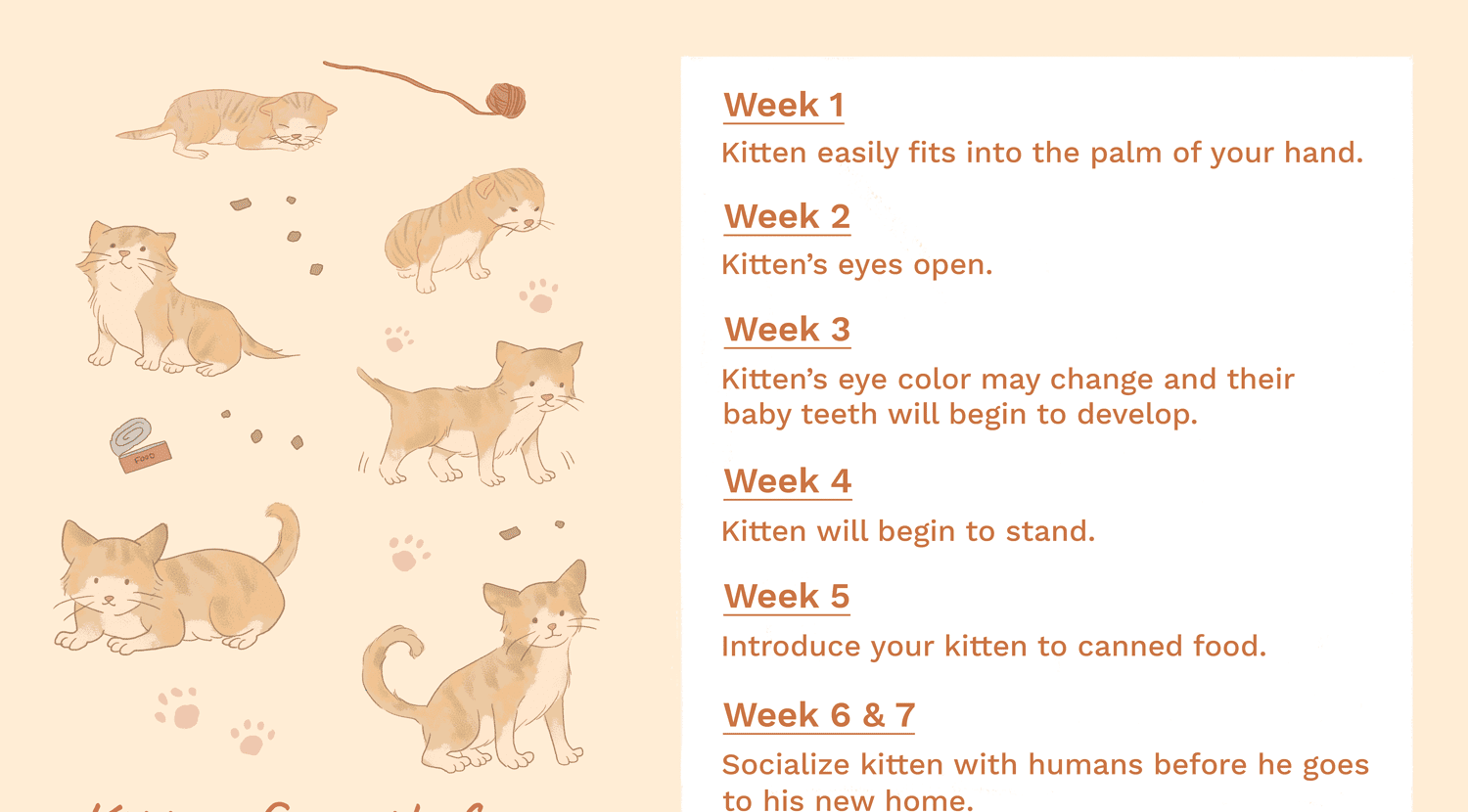Are you a proud owner of a playful and adorable kitten? If so, then understanding their feeding schedule is essential for their healthy growth and development. Knowing how much food kittens need not only ensures they receive the proper nutrition, but also helps prevent overfeeding or underfeeding.
In fact, studies show that kittens who are fed an appropriate amount of food have a lower risk of developing health issues later in life.
So, whether you're a first-time kitten owner or looking to improve your current feeding routine, this article will guide you through the ins and outs of creating a balanced and nourishing diet for your furry friend. Get ready to discover the secrets to keeping your kitten happy, healthy, and purring with contentment!
Key Takeaways:
- Kittens should be fed multiple small meals throughout the day, as their stomachs are small and cannot hold large amounts of food.
- The amount of food a kitten needs depends on its age, weight, and activity level. It is important to follow feeding guidelines provided by a veterinarian or the kitten's breeder.
- Kittens require a diet that is high in protein and rich in nutrients to support their rapid growth and development.
- It is important to gradually transition kittens from milk (if they were previously nursing) to solid food over a period of several weeks.
- Monitoring a kitten's weight and body condition can help determine if adjustments need to be made to their feeding schedule or portion sizes.
How often should kittens be fed?
Establishing a feeding routine
When it comes to feeding kittens, establishing a consistent routine is key. Kittens have small stomachs and high energy levels, so they need to eat frequently throughout the day. As a general guideline, kittens should be fed about four times a day until they reach around six months of age.
By providing regular meals at set times each day, you can help your kitten develop healthy eating habits and maintain their energy levels. It's important to note that individual kittens may have slightly different needs, so it's best to consult with your veterinarian for specific feeding recommendations based on your kitten's age, breed, and overall health.
Tips for establishing a feeding routine:
- Divide your kitten's daily food portion into multiple smaller meals.
- Stick to a consistent schedule by feeding your kitten at the same times each day.
- Avoid leaving food out all day as free-feeding can lead to overeating and weight gain.
Recommended amount of food for a kitten
Determining the right portion size
The amount of food a kitten needs depends on various factors such as their age, weight, and activity level. It's crucial to provide them with the appropriate portion sizes to ensure proper growth and development. Generally, kittens should consume about 1/4 cup of high-quality kitten food per meal.
If you're unsure about the exact portion size for your kitten, consult the packaging of their cat food or ask your veterinarian for guidance. Remember that overfeeding can lead to obesity and related health issues, while underfeeding can result in malnutrition.
Tips for determining the right portion size:
- Follow the feeding guidelines provided by the cat food manufacturer.
- Monitor your kitten's weight and adjust the portion size accordingly.
- Consider feeding a combination of dry and wet food to meet their nutritional needs.
Best feeding times for kittens
Creating a consistent schedule
Kittens thrive on routine, so it's important to establish regular feeding times. By feeding your kitten at consistent intervals throughout the day, you can help maintain their energy levels and prevent them from becoming overly hungry or agitated.
Aim to provide meals at least four times a day, spacing them out evenly. For example, you might feed your kitten in the morning, midday, afternoon, and evening. This schedule ensures that they receive a steady supply of nutrients throughout the day without overloading their digestive system.
Tips for creating a consistent feeding schedule:
- Choose specific times that work best for both you and your kitten.
- Avoid skipping meals or changing the schedule abruptly as this can disrupt your kitten's eating habits.
- Stick to the established routine even on weekends or during busy periods.
The importance of a consistent feeding schedule for kittens
Promoting healthy growth and behavior
Maintaining a consistent feeding schedule is crucial for kittens as it helps regulate their metabolism and promotes healthy growth. When kittens know when to expect their meals, they are less likely to become anxious or exhibit disruptive behaviors like begging or excessive meowing.
In addition to physical benefits, a regular feeding routine also aids in training kittens. By associating meal times with positive experiences, such as praise or treats, you can reinforce good behavior and establish a strong bond with your kitten.
Benefits of a consistent feeding schedule:
- Reduces the risk of overeating or undereating.
- Helps prevent digestive issues and obesity.
- Fosters a sense of security and routine for your kitten.
Determining the right portion size for a kitten's meal
Finding the balance
Providing the appropriate portion size for each meal is crucial to ensure your kitten receives the right amount of nutrients without overeating. While general guidelines can be helpful, it's important to consider your individual kitten's needs based on their age, weight, and activity level.
If your kitten finishes their food quickly and still appears hungry, you may need to increase their portion size slightly. On the other hand, if they consistently leave food behind or show signs of weight gain, it may be necessary to decrease the portion size. Regularly monitoring your kitten's weight and consulting with your veterinarian can help you find the right balance.
Tips for determining the right portion size:
- Weigh your kitten regularly to track their growth progress.
- Observe their body condition – ribs should be easily felt but not visible.
- Consult with your veterinarian for personalized recommendations based on your kitten's specific needs.
Special dietary requirements or restrictions for kittens
Catering to unique needs
In some cases, kittens may have special dietary requirements or restrictions due to health conditions or allergies. If you suspect that your kitten has specific dietary needs, it's essential to consult with a veterinarian for proper guidance.
For example, some kittens may require hypoallergenic or grain-free diets if they have food sensitivities. Others may need specialized formulas or supplements to support their growth and development. Your veterinarian can help you determine the best course of action and recommend suitable food options for your kitten's unique situation.
Tips for addressing special dietary requirements:
- Consult with a veterinarian to identify any specific dietary needs or restrictions.
- Follow their recommendations regarding suitable food options or supplements.
- Read ingredient labels carefully to ensure the chosen food meets your kitten's requirements.
Changes in a kitten's feeding schedule as they grow older
Transitioning to adult feeding habits
Kittens undergo significant growth and development during their first year of life. As they mature, their nutritional needs change, and adjustments to their feeding schedule may be necessary.
Around six months of age, most kittens can transition from being fed four times a day to three meals per day. By one year of age, two meals per day are generally sufficient for most cats. However, individual cats may have different needs based on factors such as size, activity level, and overall health. Regular veterinary check-ups can help ensure that you're providing the appropriate feeding schedule for your growing kitten.
Tips for transitioning feeding schedules:
- Gradually reduce the number of daily meals as your kitten grows older.
- Monitor their weight and adjust portion sizes accordingly during the transition period.
- Consult with your veterinarian for personalized advice based on your cat's specific needs.
In conclusion, it is important to provide kittens with a consistent feeding schedule and the right amount of food. By following a proper feeding routine, we can ensure that our kittens grow up healthy and strong.
What is a good food schedule for kittens?
It is recommended to feed your kitten three to four meals per day for the first six to nine months. Kittens have a higher food requirement due to their energetic nature and rapid growth. Growing kittens need up to three times more calories and nutrients compared to adult cats.
How many portions should I feed my kitten?
For adult cats, it is recommended to provide three to four servings per 5 pounds of their optimal body weight each day. Pregnant and nursing cats should be given two to three times their usual portion size to accommodate the needs of their growing litter. Kittens, on the other hand, require four to seven servings of food daily.
Will kittens stop eating when full?
However, Strandell assures that there is no need to be concerned about overfeeding a newborn kitten. "When a kitten is satisfied, it will stop eating," she explains. "A newborn kitten will turn its head to indicate that it has had enough." Kittens between the ages of 2 and 4 weeks should be given milk from a bottle every 3 to 4 hours.
Can you overfeed kittens?
Typically, a kitten will let you know when she is full during each feeding session. If she is overfed, she may be at risk for experiencing constipation, bloating, gas, diarrhea, or other severe gastrointestinal issues. In newborn kittens, these complications can be life-threatening.
How much wet food should I give my kitten?
Once your kitten reaches three months of age, it is recommended to include one and a half pouches of wet food in their daily diet, alongside four to five meals. If your kitten is ready for a combination of wet and dry food, you can reduce the amount of wet food to half a pouch or up to one pouch (each pouch weighs 100 grams).
Is one can of kitten food a day enough?
For instance, Blue Buffalo Wilderness Kitten Chicken Grain-Free Canned Cat Food recommends that you provide your kitten with as much food as they can consume in three or four feedings per day until they reach 20 weeks of age. After that, it is recommended to give them half a can of food per pound of body weight each day until they reach 30 weeks.

















